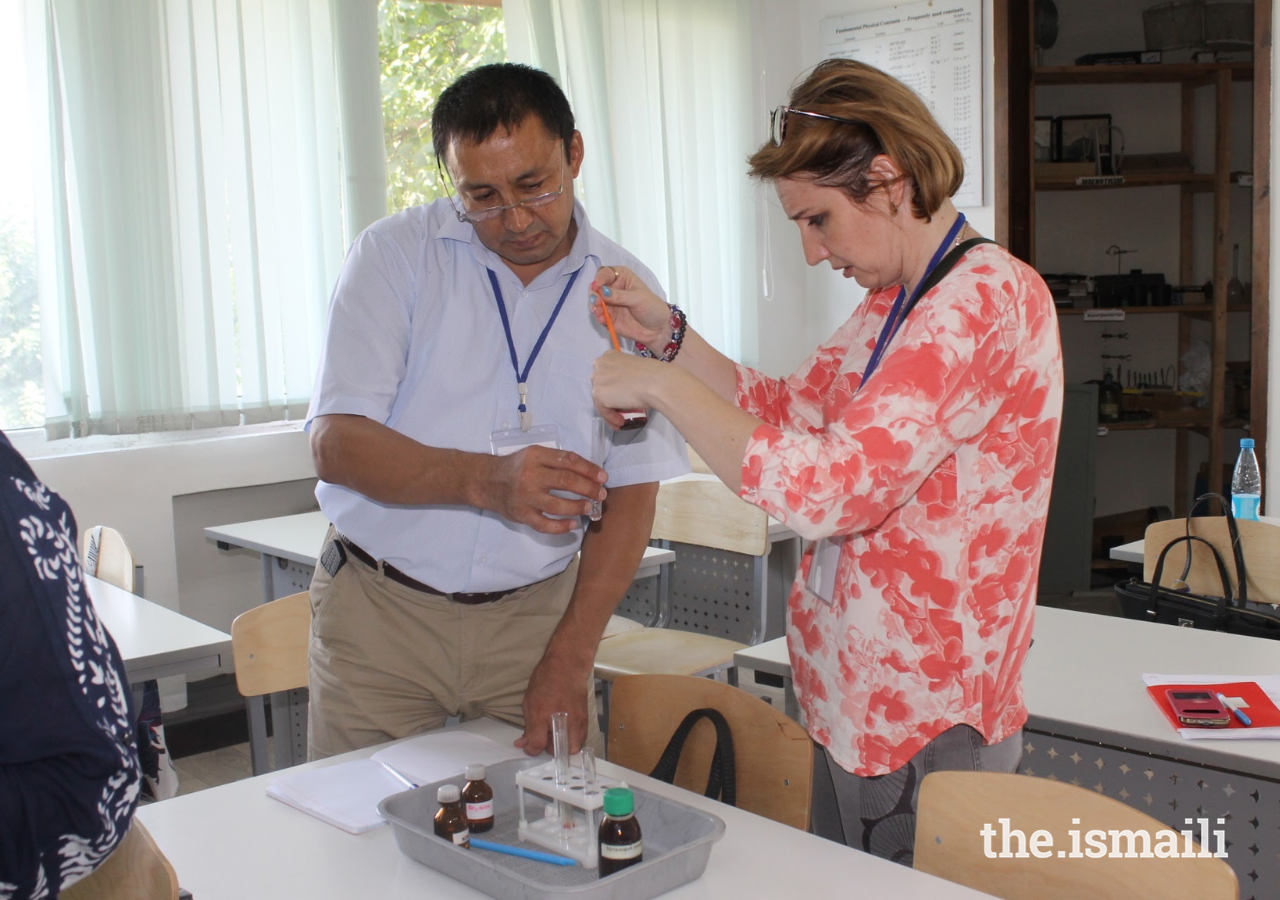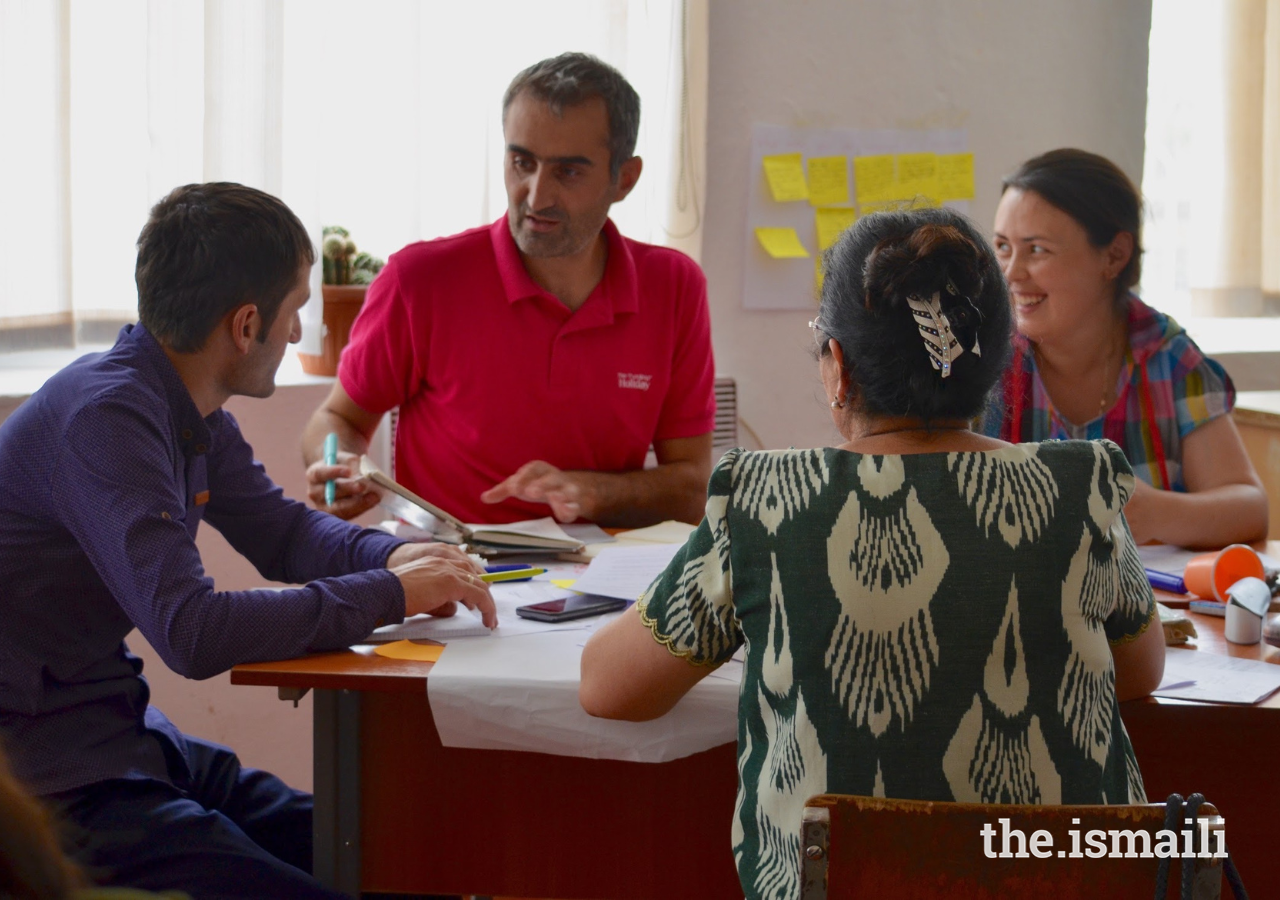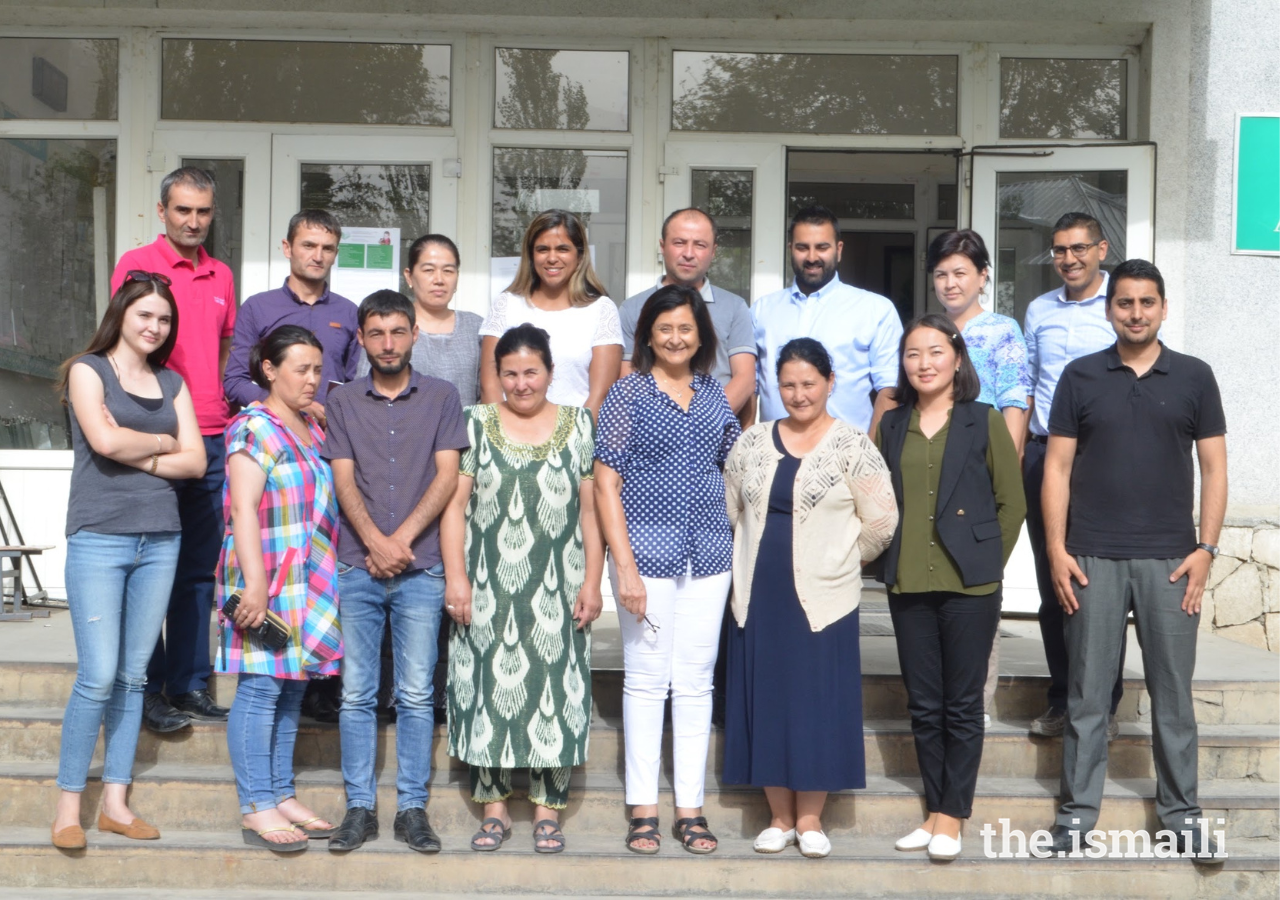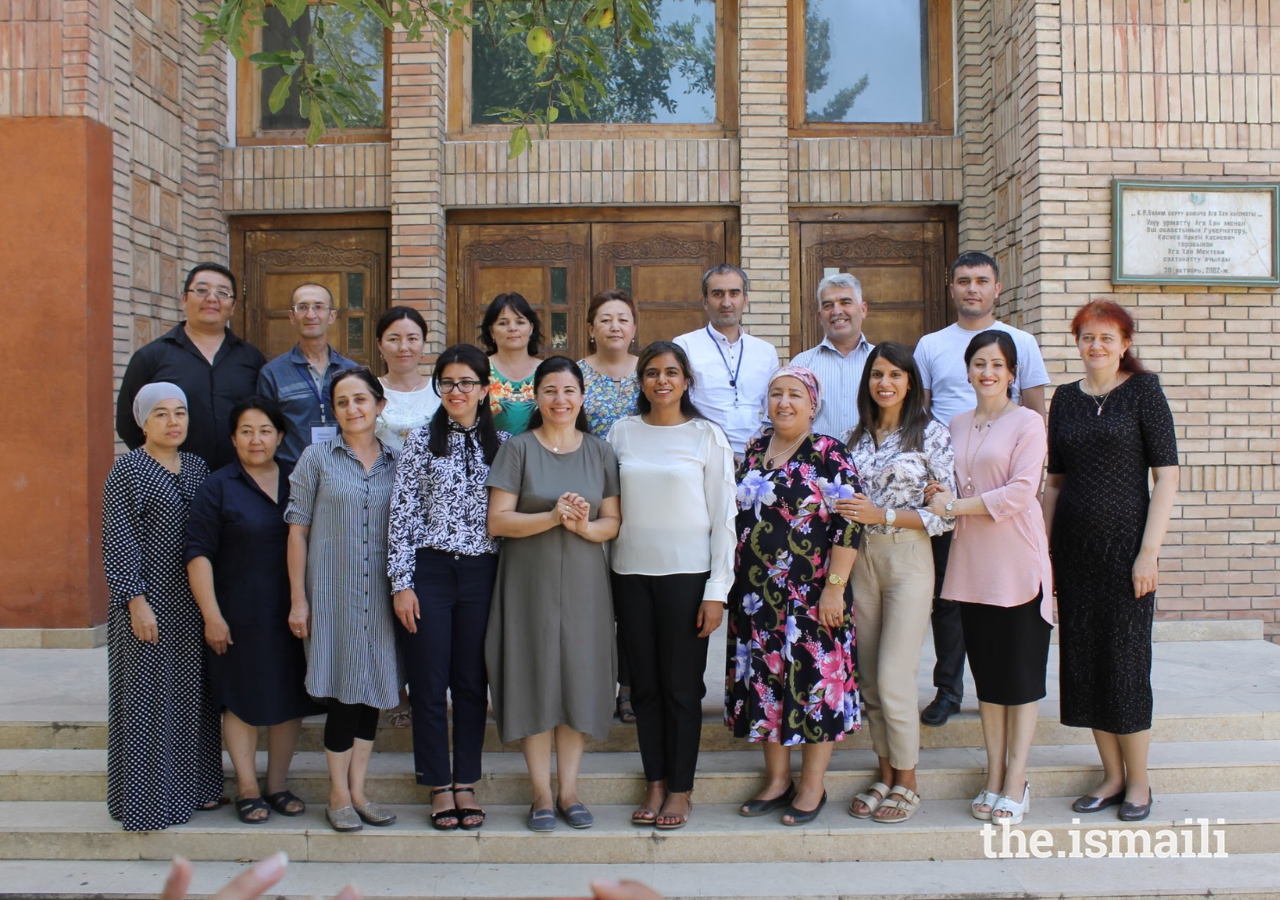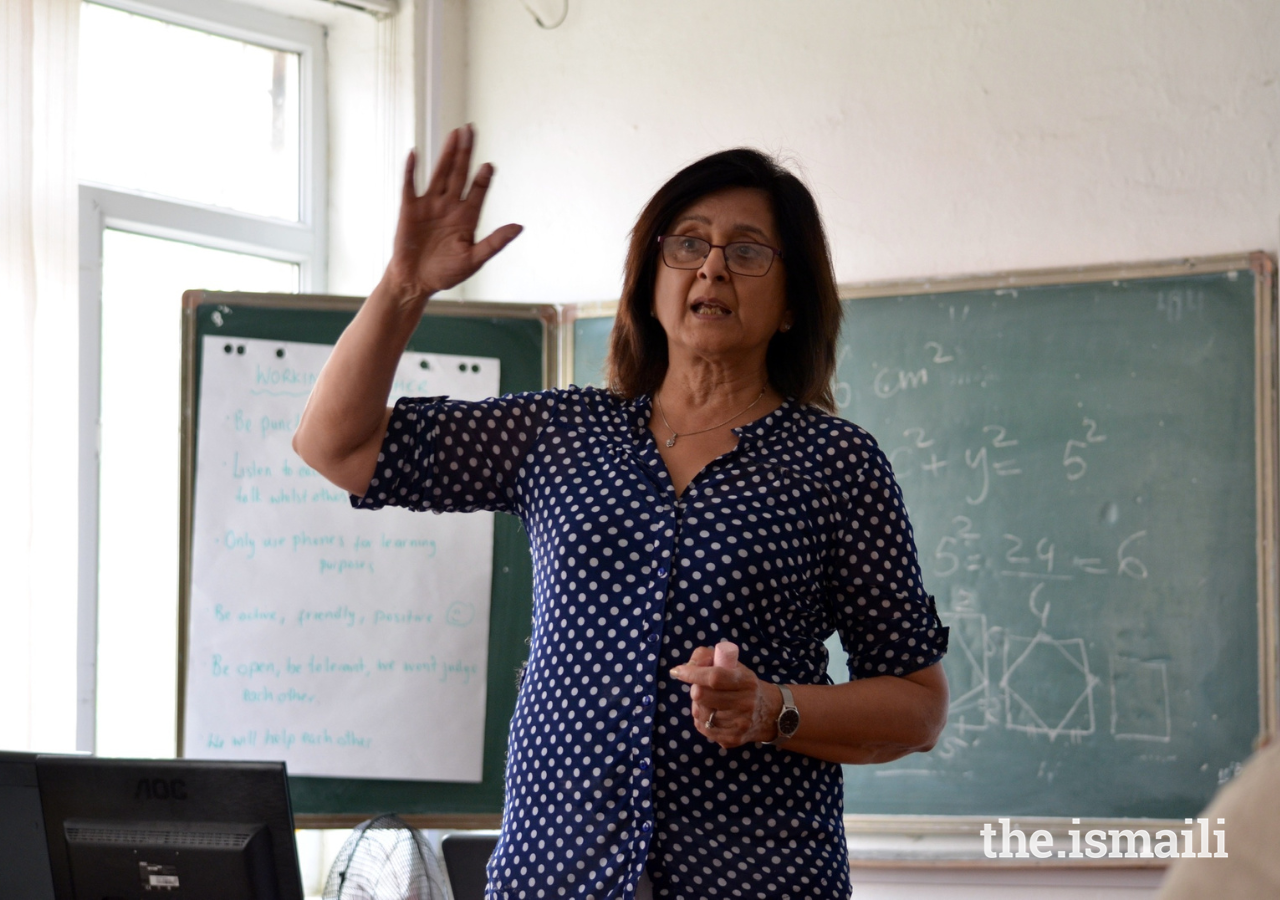A partnership between the Aga Khan Schools (AKS) — including the Aga Khan Education Services and Aga Khan Academies — and the Aga Khan Education Board (AKEB) in the United Kingdom, the Professional Teachers Collaboration is part of a continued effort to strengthen capacity for the delivery of core curricula and support the successful entry for students to quality tertiary education institutions. The aim of the collaboration is to further enhance and enrich the pedagogical skills of AKS teachers through dialogue, discourse, and collaboration.
“The Aga Khan Schools foster a sense of lifelong learning; staff are committed to personal growth and are enthusiastic about both sharing best practices and learning from others,” said Atifa Sayani, Head of Academic Programmes for AKS.
Since the partnership began in 2018, seven educators from the UK have been recruited as Time and Knowledge Nazrana (TKN) volunteers to travel to Central Asia to support teachers and school leaders from the Aga Khan Lycée, Khorog in Tajikistan and the Aga Khan School, Osh in the Kyrgyz Republic. Their primary focus has been the exchange of best practices in the teaching of mathematics and the sciences at the secondary level, as well as strengthening instructional leadership skills and theoretical and practical knowledge of local educators.
“It has been a very special experience to serve and offer TKN in this way,” said Sugra Alibhai, AKEB UK board member and lead for the Professional Teachers Collaboration. “As educators in the UK, we are aware of the incredible impact AKS has globally and this project is a unique chance to share our professional skills and forge deep connections with the teams we have collaborated with.”
Considerable planning took place before the UK team arrived in Central Asia. After six days of in-country training, the visiting team scheduled follow-up calls to support the hosts in implementing the areas of focus. Participants were given time to consolidate what was explored in the workshops and for the new skills to be tried in classrooms. During the global pandemic, virtual workshops took place, which focused on online delivery of lessons.
“The project was a unique opportunity for Tajik, Kyrgyz, and UK educators to engage in sharing experiences and learning from one another,” said Nafisa Gulshaeva, Head of Academics for Aga Khan Education Services in Central Asia. “The active participation we have been observing in the training and the follow-up component of the programme is a strong indicator of the success of the programme for us.”
To date, over 40 AKS teachers from Tajikistan and Kyrgyz Republic have been directly involved in the teacher collaboration initiative. In turn, they have taught over 1,000 AKS students. The programme has also created a ripple effect beyond those teachers to other colleagues who are keen to try out the new skills. This year, a team from the UK will travel to Dar es Salaam, Tanzania to work with a new team in a different region.
“The training greatly expanded my understanding around diverse approaches to teaching science and how those approaches can be used to maximise opportunities for our students to learn practical science,” said Khudonazarova Nozanin, a science teacher at the Aga Khan Lycée, Khorog. “It was beautifully executed to bring together research and practice. I have learnt a lot; however, there is still more to learn, practice [and] reflect upon.”

